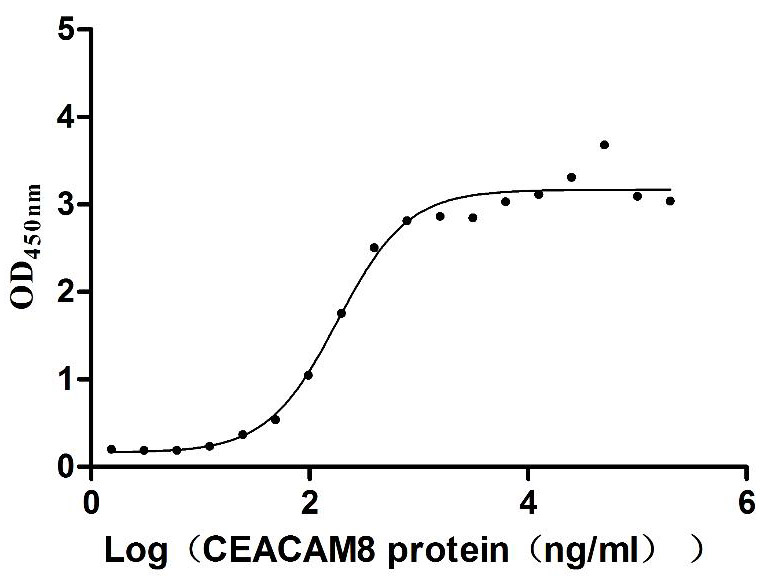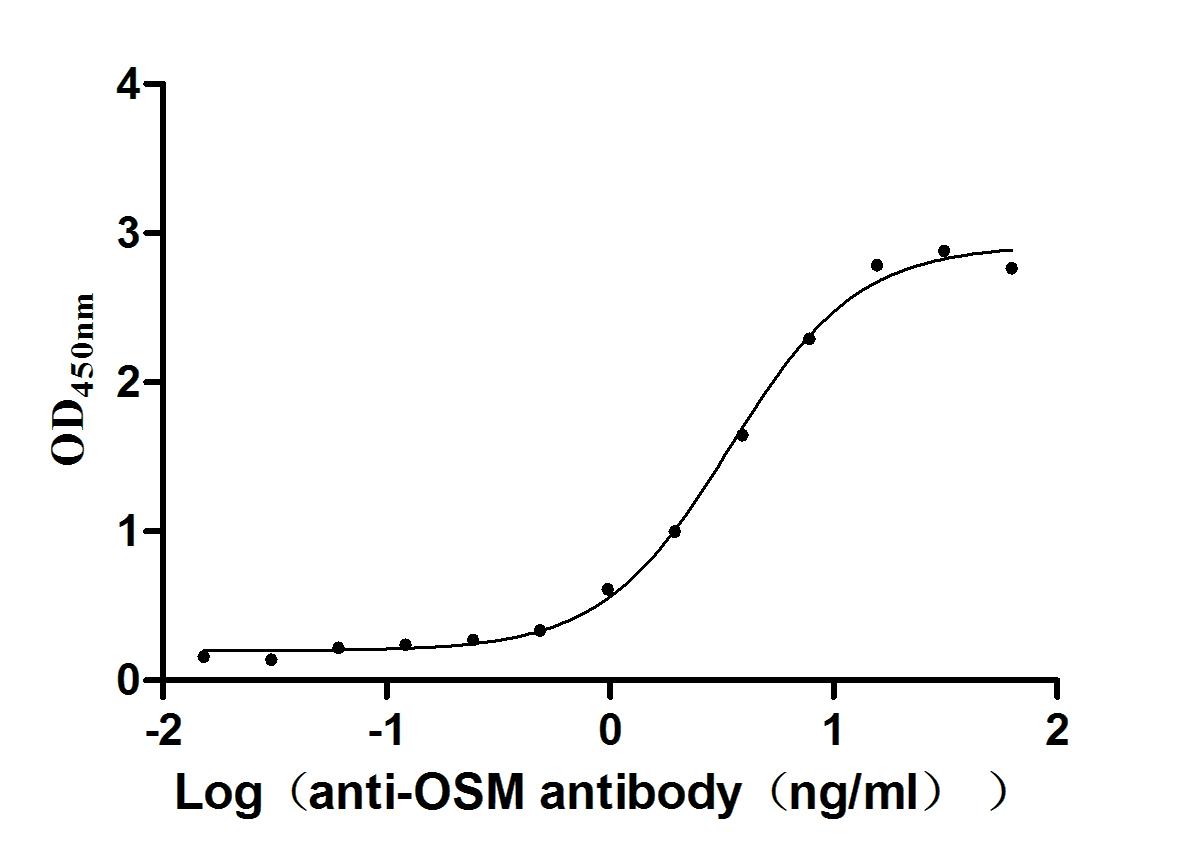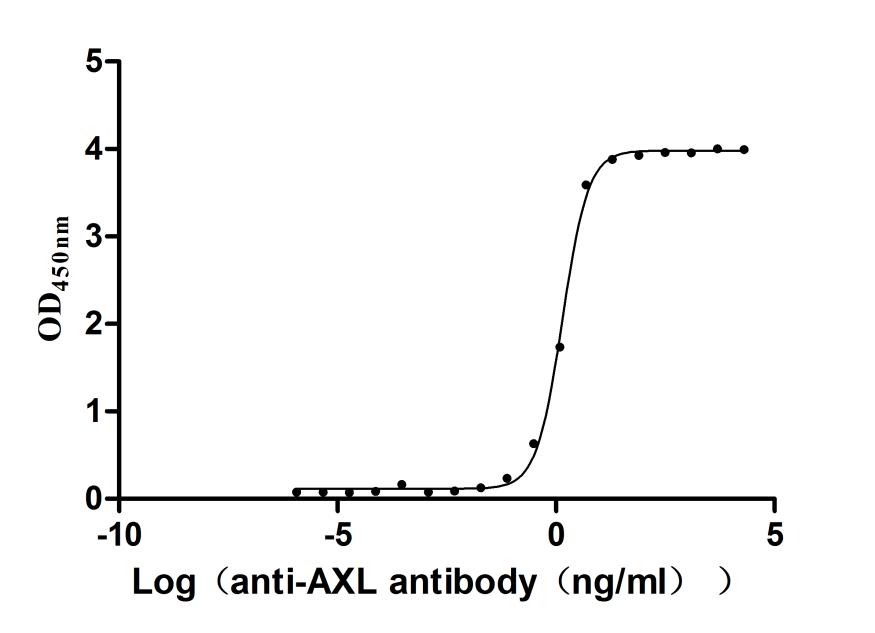Recombinant Rat Partitioning defective 6 homolog alpha (Pard6a)
-
货号:CSB-YP731845RA
-
规格:
-
来源:Yeast
-
其他:
-
货号:CSB-EP731845RA
-
规格:
-
来源:E.coli
-
其他:
-
货号:CSB-EP731845RA-B
-
规格:
-
来源:E.coli
-
共轭:Avi-tag Biotinylated
E. coli biotin ligase (BirA) is highly specific in covalently attaching biotin to the 15 amino acid AviTag peptide. This recombinant protein was biotinylated in vivo by AviTag-BirA technology, which method is BriA catalyzes amide linkage between the biotin and the specific lysine of the AviTag.
-
其他:
-
货号:CSB-BP731845RA
-
规格:
-
来源:Baculovirus
-
其他:
-
货号:CSB-MP731845RA
-
规格:
-
来源:Mammalian cell
-
其他:
产品详情
-
纯度:>85% (SDS-PAGE)
-
基因名:
-
Uniprot No.:
-
别名:Pard6a; Par-6a; Par6a; Partitioning defective 6 homolog alpha; PAR-6; PAR-6 alpha; PAR-6A
-
种属:Rattus norvegicus (Rat)
-
蛋白长度:full length protein
-
表达区域:1-346
-
氨基酸序列MARPQRTPAR SPDSIVEVKS KFDAEFRRFA LPRTSVRGFQ EFSRLLCVVH QIPGLDVLLG YTDAHGDLLP LTNDDSLHRA LASGPPPLRL LVQKRAEGDS SGLAFASNSL QRRKKGLLLR PVAPLRTRPP LLISLPQDFR QVSSVIDVDL LPETHRRVRL HKHGSDRPLG FYIRDGMSVR VAPQGLERVP GIFISRLVRG GLAESTGLLA VSDEILEVNG IEVAGKTLDQ VTDMMVANSH NLIVTVKPAN QRNNVVRGAS GRLTGPSSVG PGPTDPDSDD DNSDPVIENR HPPCSNGLSQ GPLCWDLQPG CLHPSAGSSL PSLDSREQAN SGWGNGMRGD VSGFSL
-
蛋白标签:Tag type will be determined during the manufacturing process.
The tag type will be determined during production process. If you have specified tag type, please tell us and we will develop the specified tag preferentially. -
产品提供形式:Lyophilized powder
Note: We will preferentially ship the format that we have in stock, however, if you have any special requirement for the format, please remark your requirement when placing the order, we will prepare according to your demand. -
复溶:We recommend that this vial be briefly centrifuged prior to opening to bring the contents to the bottom. Please reconstitute protein in deionized sterile water to a concentration of 0.1-1.0 mg/mL.We recommend to add 5-50% of glycerol (final concentration) and aliquot for long-term storage at -20℃/-80℃. Our default final concentration of glycerol is 50%. Customers could use it as reference.
-
储存条件:Store at -20°C/-80°C upon receipt, aliquoting is necessary for mutiple use. Avoid repeated freeze-thaw cycles.
-
保质期:The shelf life is related to many factors, storage state, buffer ingredients, storage temperature and the stability of the protein itself.
Generally, the shelf life of liquid form is 6 months at -20°C/-80°C. The shelf life of lyophilized form is 12 months at -20°C/-80°C. -
货期:Delivery time may differ from different purchasing way or location, please kindly consult your local distributors for specific delivery time.Note: All of our proteins are default shipped with normal blue ice packs, if you request to ship with dry ice, please communicate with us in advance and extra fees will be charged.
-
注意事项:Repeated freezing and thawing is not recommended. Store working aliquots at 4°C for up to one week.
-
Datasheet :Please contact us to get it.
靶点详情
-
功能:Adapter protein involved in asymmetrical cell division and cell polarization processes. Probably involved in the formation of epithelial tight junctions. Association with PARD3 may prevent the interaction of PARD3 with F11R/JAM1, thereby preventing tight junction assembly. The PARD6-PARD3 complex links GTP-bound Rho small GTPases to atypical protein kinase C proteins. Regulates centrosome organization and function. Essential for the centrosomal recruitment of key proteins that control centrosomal microtubule organization.
-
亚细胞定位:Cytoplasm. Cell membrane. Cell junction, tight junction. Cytoplasm, cytoskeleton, microtubule organizing center, centrosome, centriolar satellite. Cytoplasm, cytoskeleton, microtubule organizing center, centrosome.
-
蛋白家族:PAR6 family
-
数据库链接:
STRING: 10116.ENSRNOP00000043456
UniGene: Rn.16053
Most popular with customers
-
Recombinant Human Carcinoembryonic antigen-related cell adhesion molecule 6 (CEACAM6) (Active)
Express system: Mammalian cell
Species: Homo sapiens (Human)
-
Recombinant Human Oncostatin-M (OSM), partial (Active)
Express system: Mammalian cell
Species: Homo sapiens (Human)
-
Recombinant Human Tyrosine-protein kinase receptor UFO(AXL),partial (Active)
Express system: Mammalian cell
Species: Homo sapiens (Human)















